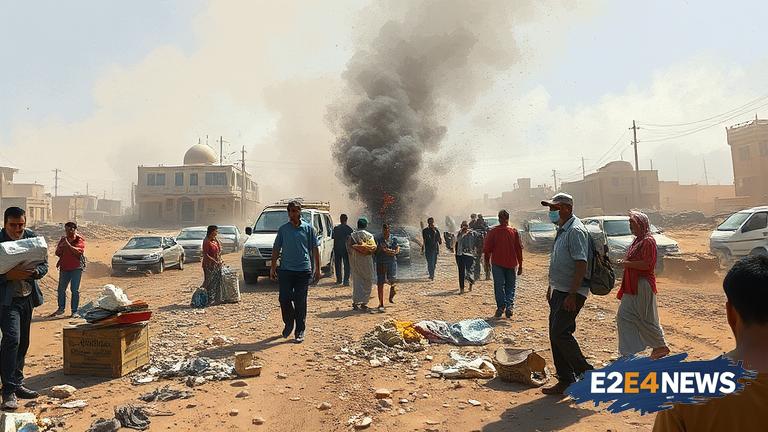The Gaza Strip is facing an unprecedented humanitarian crisis, with dozens of people killed in recent days while searching for food. The situation has become increasingly dire, with many residents struggling to access basic necessities like food, water, and shelter. The crisis has been exacerbated by the ongoing conflict between Israel and Palestinian militants, which has resulted in widespread destruction and displacement. As the situation continues to deteriorate, a US envoy is set to arrive in Israel, sparking hopes of a potential breakthrough in the peace process. However, with tensions running high, it remains to be seen whether the envoy’s visit will have any meaningful impact on the ground. The humanitarian crisis in Gaza has been building for months, with the blockade imposed by Israel and Egypt severely limiting the flow of goods and people into the territory. The blockade has had a devastating impact on the local economy, with many businesses forced to close and unemployment soaring. The lack of access to basic necessities has also had a severe impact on the health and wellbeing of Gaza’s residents, with many struggling to access medical care and other essential services. The situation has been further complicated by the COVID-19 pandemic, which has placed an additional strain on the territory’s already fragile healthcare system. Despite the challenges, many aid organizations and humanitarian groups are working tirelessly to provide support to those in need. However, their efforts are often hindered by the blockade and other restrictions, which limit their ability to access the territory and deliver aid. The international community has been criticized for its response to the crisis, with many arguing that more needs to be done to address the root causes of the conflict and provide support to those affected. The US envoy’s visit to Israel is seen as a potential opportunity for the international community to reengage with the peace process and work towards a more lasting solution. However, with the Israeli government facing criticism for its handling of the crisis, it remains to be seen whether the visit will have any meaningful impact. The humanitarian crisis in Gaza is a complex and multifaceted issue, with deep-rooted historical, political, and economic factors at play. To address the crisis, it is essential that the international community takes a comprehensive and nuanced approach, one that acknowledges the complexity of the issue and works towards a lasting and sustainable solution. This will require a commitment to addressing the root causes of the conflict, including the blockade and the occupation, as well as providing support to those affected. It will also require a willingness to engage with all parties involved, including the Israeli government, the Palestinian Authority, and other stakeholders. Ultimately, the goal must be to create a more just and equitable society, one in which all individuals have access to their basic human rights and can live in dignity and security. The situation in Gaza is a stark reminder of the need for a more compassionate and humane approach to international relations, one that prioritizes the needs and wellbeing of all individuals, regardless of their nationality or background. As the international community continues to grapple with the challenges posed by the crisis, it is essential that we remain committed to the principles of justice, equality, and human rights. The people of Gaza deserve nothing less, and it is our collective responsibility to ensure that their rights and dignity are respected and protected. The crisis in Gaza is a humanitarian emergency that requires an immediate and sustained response. It is essential that we take action now to address the crisis and work towards a more lasting solution. The international community must come together to provide support to those affected, and to work towards a more just and equitable society. The US envoy’s visit to Israel is a potential opportunity for progress, but it is only the first step in a long and difficult journey. We must remain committed to the cause of justice and human rights, and work tirelessly to create a better future for all.
